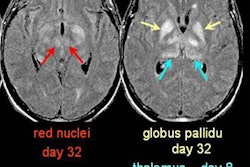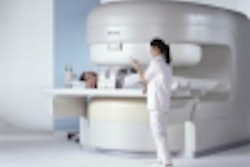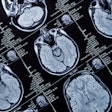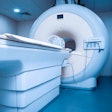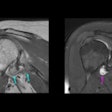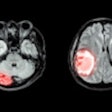These days, it's hardly unusual to see a patient arrive for an MRI scan armed with information found on the Internet. But seeing a patient who has downloaded accurate information can be a rarity, according to U.K. researchers.
Dr. Sharyn Brown and Dr. Rick Harrison from the department of radiology, Nuffield Orthopaedic Centre, Headington, Oxford, evaluated the quality of MR information available to the general public. They shared their findings in a poster presentation at the 2002 RSNA meeting in Chicago.
"In the U.K., the popularity of MR is rising disproportionately to the number of scanners available," wrote Brown and Harrison. "Recent literature suggests that many patients...are unprepared for their scans, (and) a lack of pre-education has been correlated with a higher rate of claustrophobia and expensive scan aborts."
For this study, the duo reviewed 30 Web sites selected using the search term "MRI scan." Each Web site was scored by two independent observers based on predetermined criteria that assessed for quality and completeness of information. The sites were then given one point for each criterion met, for a maximum of 24 points.
According to the results, the scores ranged from 1-24, with a median of 11. A general definition of MRI was given in 86% of the cases, while 63% of the sites stated the clinical indications for an MR exam.
However, only 50% of the sites mentioned that there was no ionizing radiation involved in an MRI scan, and less than half (43%) explained alternative imaging modalities, the authors found. Only 10% of the sites stated that an x-ray exam may be required in addition to the MR imaging. And less than half the sites (43%) mentioned that a contrast agent injection could be necessary.
In terms of preparation, 23% of the sites stated that the MR exam would only take a day, while 36% stated that food and drink could be consumed prior to the scan.
Information regarding the exam procedure and any ensuing claustrophobia was a mixed bag, the authors found. The majority of the Web sites (70%) discussed the duration of a scan, as well as explained the source of the loud noises heard inside the scanner. But only 46% of sites mentioned the possibility of claustrophobia or included a picture of an MR scanner to illustrate the point.
The issue of claustrophobia is especially important, as it has a major impact on the success of an MR scan. Up to 37% of patients undergoing MRI exams experience moderate to severe levels of anxiety that necessitate the termination of the procedure in 5%-10% of patients, according to a report from the Medical School of Hannover in Germany (American Journal of Roentgenology, April 2001, Vol.176:4, pp. 865-868).
In another related study, a group from the Royal Brompton and Harefield NHS Trust in London, U.K. reported on the value of a mild sedation for patients undergoing cardiovascular MR. While they found that a low dose of diazepam allowed for successful scanning in 30 out of 54 patients, eight people refused sedation and five of these patients had their scans terminated early because of claustrophobia (Journal of Cardiovascular Magnetic Resonance, 2000, Vol.2:2, pp.139-141).
But only 10% of the MRI Web sites analyzed in the RSNA study mentioned sedation, Brown and Harrison stated.
Finally, in terms of MR safety, 76% of the sites scored high marks for discussing the types of medical implants that may be affected by the scanner. But only 50% raised the issue of whether pregnant patients should undergo MR scans.
"We have determined that (Internet) information regarding MR is variable and frequently incomplete," they concluded. "Those patients using the Internet as a source of information may not be fully...prepared for MR scanning, having financial and possible medico-legal implications."
The authors suggested that MR facility staff direct patients to approved Web sites, or take the initiative and provide in-house education materials to patients.
By Shalmali PalAuntMinnie.com staff writer
December 11, 2002
Related Reading
Customer service begins at the top, November 22, 2002
PET center deploys "secret weapon" in marketing efforts, October 24, 2002
Imaging center marketing: Don't trade dollars for doughnuts, September 18, 2002
Copyright © 2002 AuntMinnie.com




